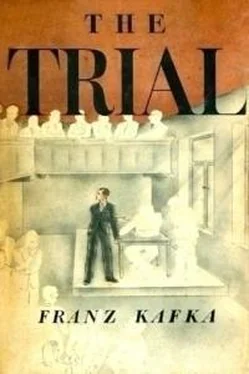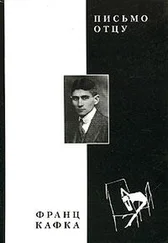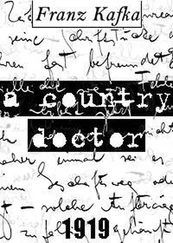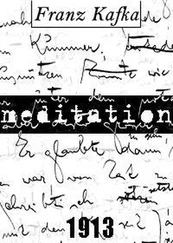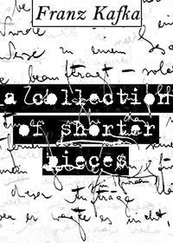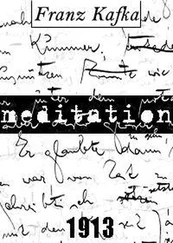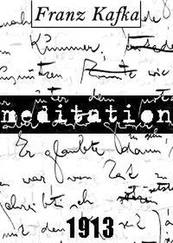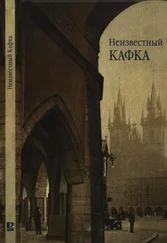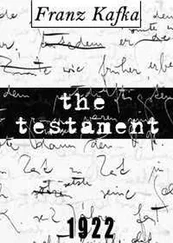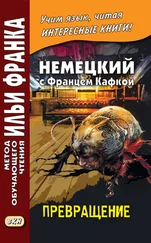Франц Кафка - The Trial
Здесь есть возможность читать онлайн «Франц Кафка - The Trial» — ознакомительный отрывок электронной книги совершенно бесплатно, а после прочтения отрывка купить полную версию. В некоторых случаях можно слушать аудио, скачать через торрент в формате fb2 и присутствует краткое содержание. Год выпуска: 2014, Издательство: epubBooks Classics, Жанр: Классическая проза, на английском языке. Описание произведения, (предисловие) а так же отзывы посетителей доступны на портале библиотеки ЛибКат.
- Название:The Trial
- Автор:
- Издательство:epubBooks Classics
- Жанр:
- Год:2014
- ISBN:нет данных
- Рейтинг книги:3 / 5. Голосов: 1
-
Избранное:Добавить в избранное
- Отзывы:
-
Ваша оценка:
- 60
- 1
- 2
- 3
- 4
- 5
The Trial: краткое содержание, описание и аннотация
Предлагаем к чтению аннотацию, описание, краткое содержание или предисловие (зависит от того, что написал сам автор книги «The Trial»). Если вы не нашли необходимую информацию о книге — напишите в комментариях, мы постараемся отыскать её.
The Trial — читать онлайн ознакомительный отрывок
Ниже представлен текст книги, разбитый по страницам. Система сохранения места последней прочитанной страницы, позволяет с удобством читать онлайн бесплатно книгу «The Trial», без необходимости каждый раз заново искать на чём Вы остановились. Поставьте закладку, и сможете в любой момент перейти на страницу, на которой закончили чтение.
Интервал:
Закладка:
This chapter was left unfinished.
Chapter Nine
In the Cathedral
A very important Italian business contact of the bank had come to visit the city for the first time and K. was given the task of showing him some of its cultural sights. At any other time he would have seen this job as an honour but now, when he was finding it hard even to maintain his current position in the bank, he accepted it only with reluctance. Every hour that he could not be in the office was a cause of concern for him, he was no longer able to make use of his time in the office anything like as well as he had previously, he spent many hours merely pretending to do important work, but that only increased his anxiety about not being in the office. Then he sometimes thought he saw the deputy director, who was always watching, come into K.'s office, sit at his desk, look through his papers, receive clients who had almost become old friends of K., and lure them away from him, perhaps he even discovered mistakes, mistakes that seemed to threaten K. from a thousand directions when he was at work now, and which he could no longer avoid. So now, if he was ever asked to leave the office on business or even needed to make a short business trip, however much an honour it seemed – and tasks of this sort happened to have increased substantially recently – there was always the suspicion that they wanted to get him out of his office for a while and check his work, or at least the idea that they thought he was dispensable. It would not have been difficult for him to turn down most of these jobs, but he did not dare to do so because, if his fears had the slightest foundation, turning the jobs down would have been an acknowledgement of them. For this reason, he never demurred from accepting them, and even when he was asked to go on a tiring business trip lasting two days he said nothing about having to go out in the rainy autumn weather when he had a severe chill, just in order to avoid the risk of not being asked to go. When, with a raging headache, he arrived back from this trip he learned that he had been chosen to accompany the Italian business contact the following day. The temptation for once to turn the job down was very great, especially as it had no direct connection with business, but there was no denying that social obligations towards this business contact were in themselves important enough, only not for K., who knew quite well that he needed some successes at work if he was to maintain his position there and that, if he failed in that, it would not help him even if this Italian somehow found him quite charming; he did not want to be removed from his workplace for even one day, as the fear of not being allowed back in was too great, he knew full well that the fear was exaggerated but it still made him anxious. However, in this case it was almost impossible to think of an acceptable excuse, his knowledge of Italian was not great but still good enough; the deciding factor was that K. had earlier known a little about art history and this had become widely known around the bank in extremely exaggerated form, and that K. had been a member of the Society for the Preservation of City Monuments, albeit only for business reasons. It was said that this Italian was an art lover, so the choice of K. to accompany him was a matter of course.
It was a very rainy and stormy morning when K., in a foul temper at the thought of the day ahead of him, arrived early at seven o'clock in the office so that he could at least do some work before his visitor would prevent him. He had spent half the night studying a book of Italian grammar so that he would be somewhat prepared and was very tired; his desk was less attractive to him than the window where he had spent far too much time sitting of late, but he resisted the temptation and sat down to his work. Unfortunately, just then the servitor came in and reported that the director had sent him to see whether the chief clerk was already in his office; if he was, then would he please be so kind as to come to his reception room as the gentleman from Italy was already there. "I'll come straight away," said K. He put a small dictionary in his pocket, took a guide to the city's tourist sites under his arm that he had compiled for strangers, and went through the deputy director's office into that of the director. He was glad he had come into the office so early and was able to be of service immediately, nobody could seriously have expected that of him. The deputy director's office was, of course, still as empty as the middle of the night, the servitor had probably been asked to summon him too but without success. As K. entered the reception room two men stood up from the deep armchairs where they had been sitting. The director gave him a friendly smile, he was clearly very glad that K. was there, he immediately introduced him to the Italian who shook K.'s hand vigorously and joked that somebody was an early riser. K. did not quite understand whom he had in mind, it was moreover an odd expression to use and it took K. a little while to guess its meaning. He replied with a few bland phrases which the Italian received once more with a laugh, passing his hand nervously and repeatedly over his blue–grey, bushy moustache. This moustache was obviously perfumed, it was almost tempting to come close to it and sniff. When they had all sat down and begun a light preliminary conversation, K. was disconcerted to notice that he understood no more than fragments of what the Italian said. When he spoke very calmly he understood almost everything, but that was very infrequent, mostly the words gushed from his mouth and he seemed to be enjoying himself so much his head shook. When he was talking in this way his speech was usually wrapped up in some kind of dialect which seemed to K. to have nothing to do with Italian but which the director not only understood but also spoke, although K. ought to have foreseen this as the Italian came from the south of his country where the director had also spent several years. Whatever the cause, K. realised that the possibility of communicating with the Italian had been largely taken from him, even his French was difficult to understand, and his moustache concealed the movements of his lips which might have offered some help in understanding what he said. K. began to anticipate many difficulties, he gave up trying to understand what the Italian said – with the director there, who could understand him so easily, it would have been pointless effort – and for the time being did no more than scowl at the Italian as he relaxed sitting deep but comfortable in the armchair, as he frequently pulled at his short, sharply tailored jacket and at one time lifted his arms in the air and moved his hands freely to try and depict something that K. could not grasp, even though he was leaning forward and did not let the hands out of his sight. K. had nothing to occupy himself but mechanically watch the exchange between the two men and his tiredness finally made itself felt, to his alarm, although fortunately in good time, he once caught himself nearly getting up, turning round and leaving. Eventually the Italian looked at the clock and jumped up. After taking his leave from the director he turned to K., pressing himself so close to him that K. had to push his chair back just so that he could move. The director had, no doubt, seen the anxiety in K.'s eyes as he tried to cope with this dialect of Italian, he joined in with this conversation in a way that was so adroit and unobtrusive that he seemed to be adding no more than minor comments, whereas in fact he was swiftly and patiently breaking into what the Italian said so that K. could understand. K. learned in this way that the Italian first had a few business matters to settle, that he unfortunately had only a little time at his disposal, that he certainly did not intend to rush round to see every monument in the city, that he would much rather – at least as long as K. would agree, it was entirely his decision – just see the cathedral and to do so thoroughly. He was extremely pleased to be accompanied by someone who was so learned and so pleasant – by this he meant K., who was occupied not with listening to the Italian but the director – and asked if he would be so kind, if the time was suitable, to meet him in the cathedral in two hours' time at about ten o'clock. He hoped he would certainly be able to be there at that time. K. made an appropriate reply, the Italian shook first the director's hand and then K.'s, then the director's again and went to the door, half turned to the two men who followed him and continuing to talk without a break. K. remained together with the director for a short while, although the director looked especially unhappy today. He thought he needed to apologise to K. for something and told him – they were standing intimately close together – he had thought at first he would accompany the Italian himself, but then – he gave no more precise reason than this – then he decided it would be better to send K. with him. He should not be surprised if he could not understand the Italian at first, he would be able to very soon, and even if he really could not understand very much he said it was not so bad, as it was really not so important for the Italian to be understood. And anyway, K.'s knowledge of Italian was surprisingly good, the director was sure he would get by very well. And with that, it was time for K. to go. He spent the time still remaining to him with a dictionary, copying out obscure words he would need to guide the Italian round the cathedral. It was an extremely irksome task, servitors brought him the mail, bank staff came with various queries and, when they saw that K. was busy, stood by the door and did not go away until he had listened to them, the deputy director did not miss the opportunity to disturb K. and came in frequently, took the dictionary from his hand and flicked through its pages, clearly for no purpose, when the door to the ante–room opened even clients would appear from the half darkness and bow timidly to him – they wanted to attract his attention but were not sure whether he had seen them – all this activity was circling around K. with him at its centre while he compiled the list of words he would need, then looked them up in the dictionary, then wrote them out, then practised their pronunciation and finally tried to learn them by heart. The good intentions he had had earlier, though, seemed to have left him completely, it was the Italian who had caused him all this effort and sometimes he became so angry with him that he buried the dictionary under some papers firmly intending to do no more preparation, but then he realised he could not walk up and down in the cathedral with the Italian without saying a word, so, in an even greater rage, he pulled the dictionary back out again.
Читать дальшеИнтервал:
Закладка:
Похожие книги на «The Trial»
Представляем Вашему вниманию похожие книги на «The Trial» списком для выбора. Мы отобрали схожую по названию и смыслу литературу в надежде предоставить читателям больше вариантов отыскать новые, интересные, ещё непрочитанные произведения.
Обсуждение, отзывы о книге «The Trial» и просто собственные мнения читателей. Оставьте ваши комментарии, напишите, что Вы думаете о произведении, его смысле или главных героях. Укажите что конкретно понравилось, а что нет, и почему Вы так считаете.
